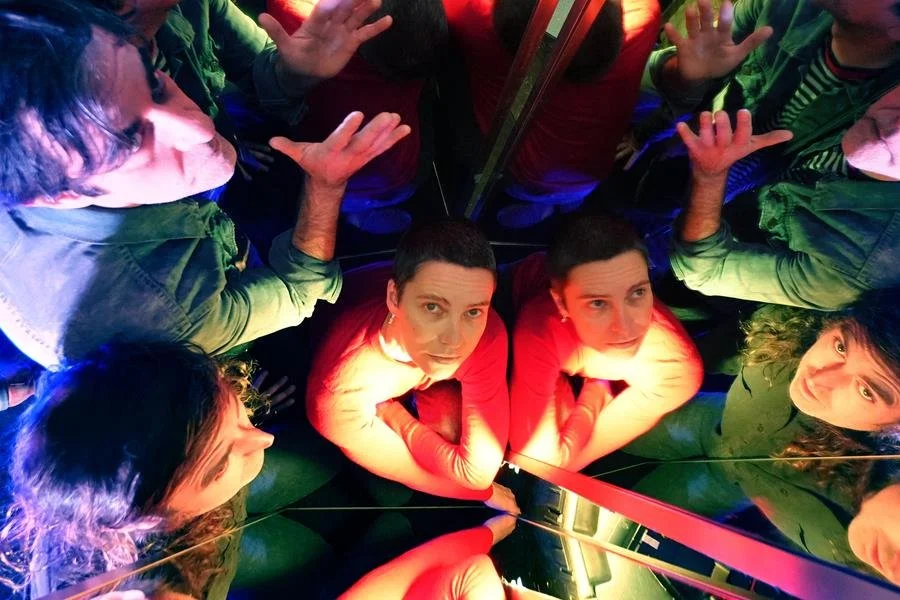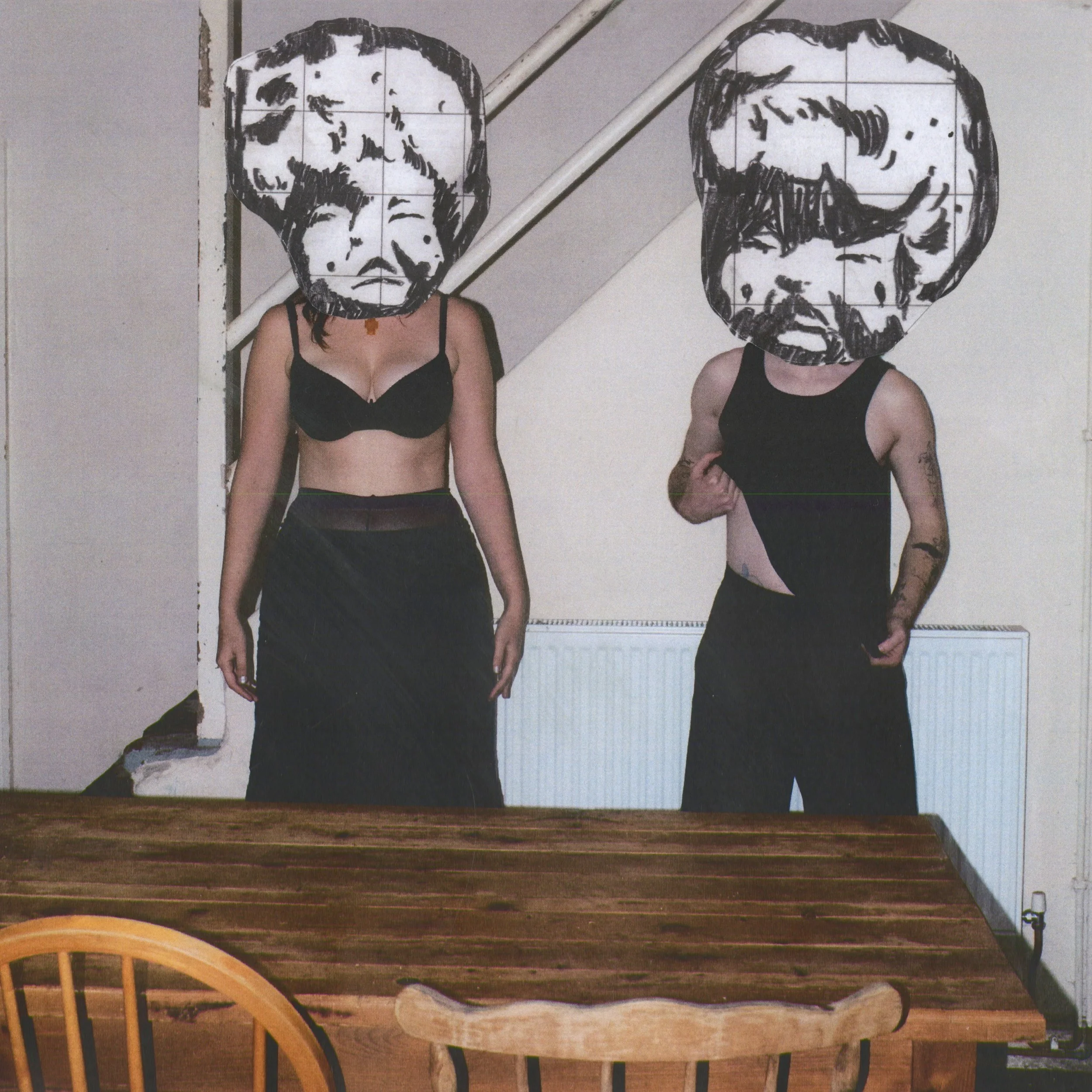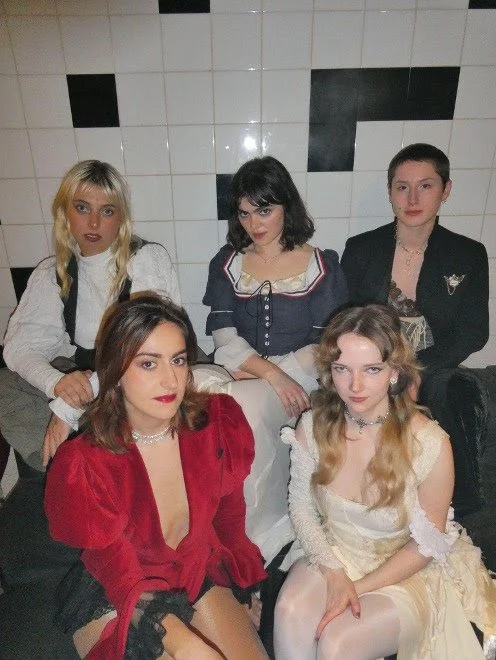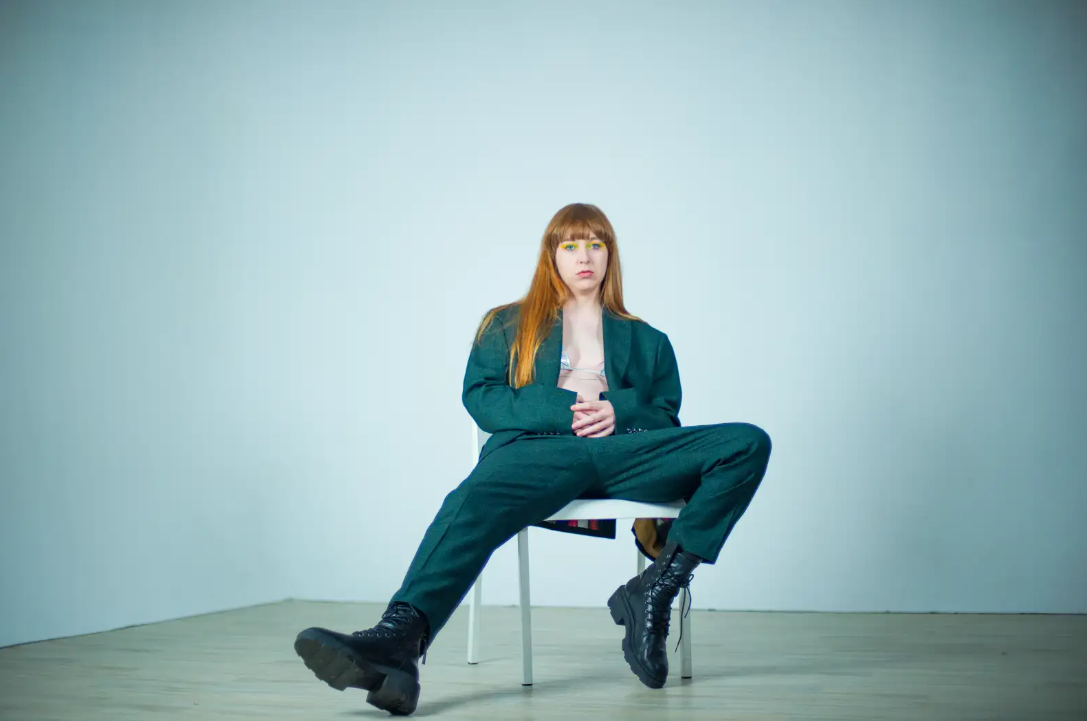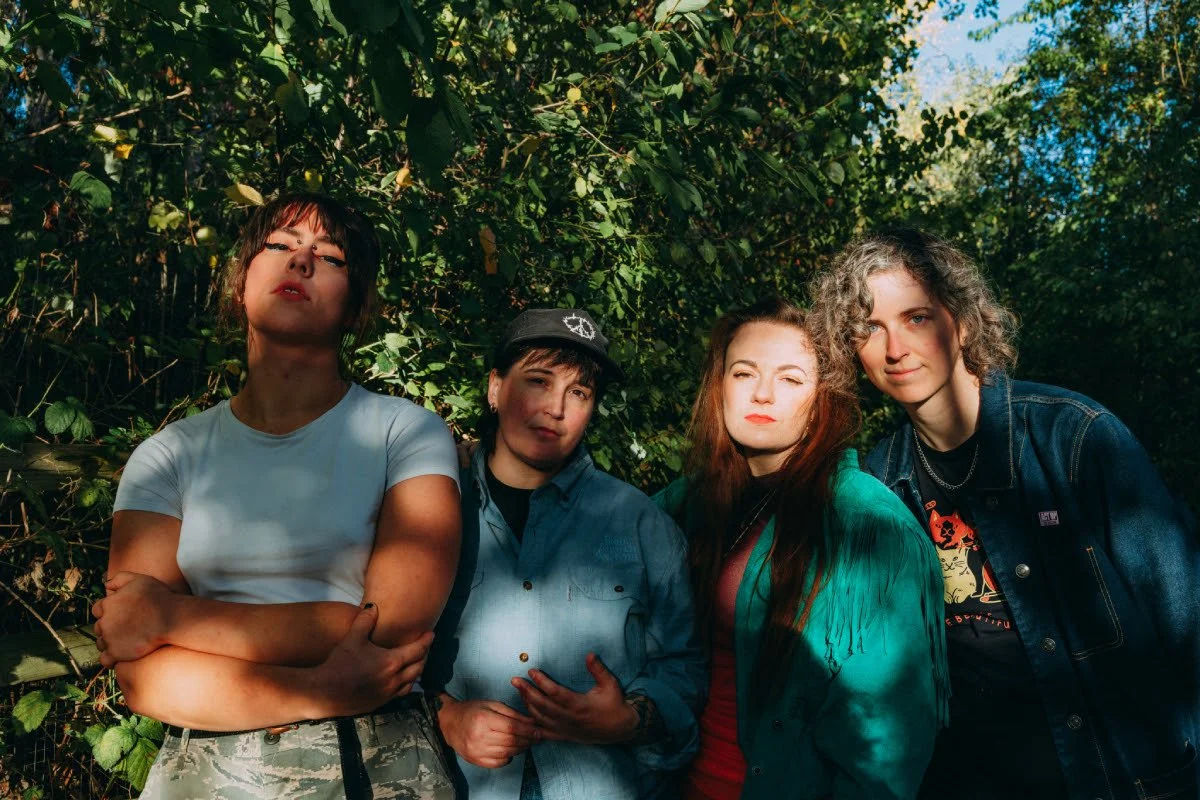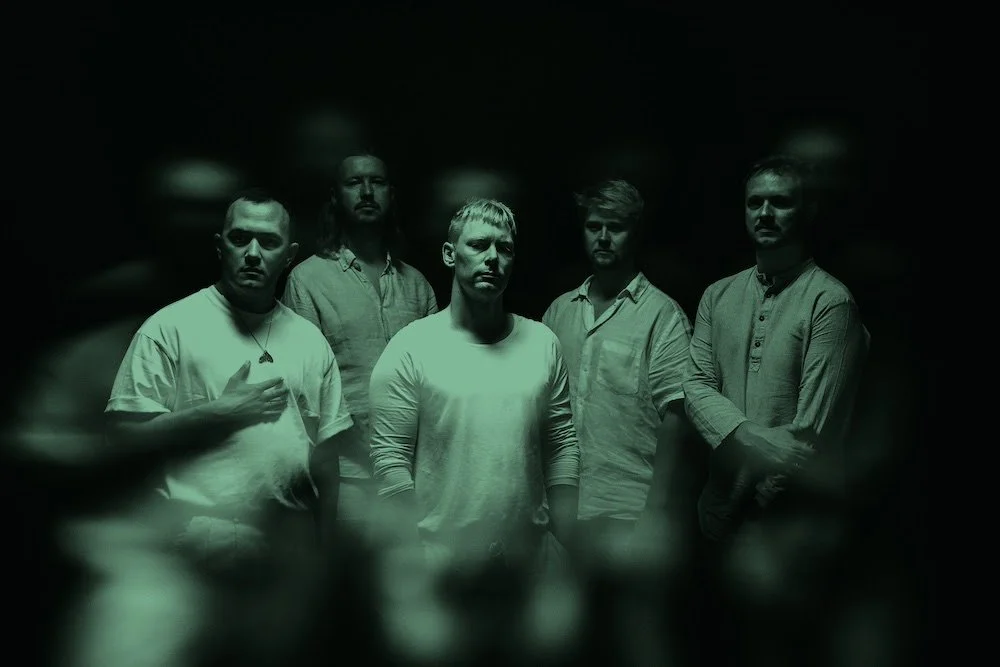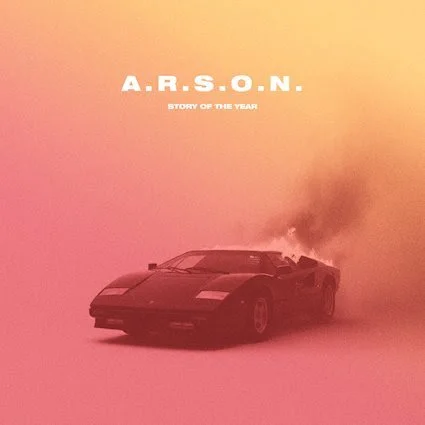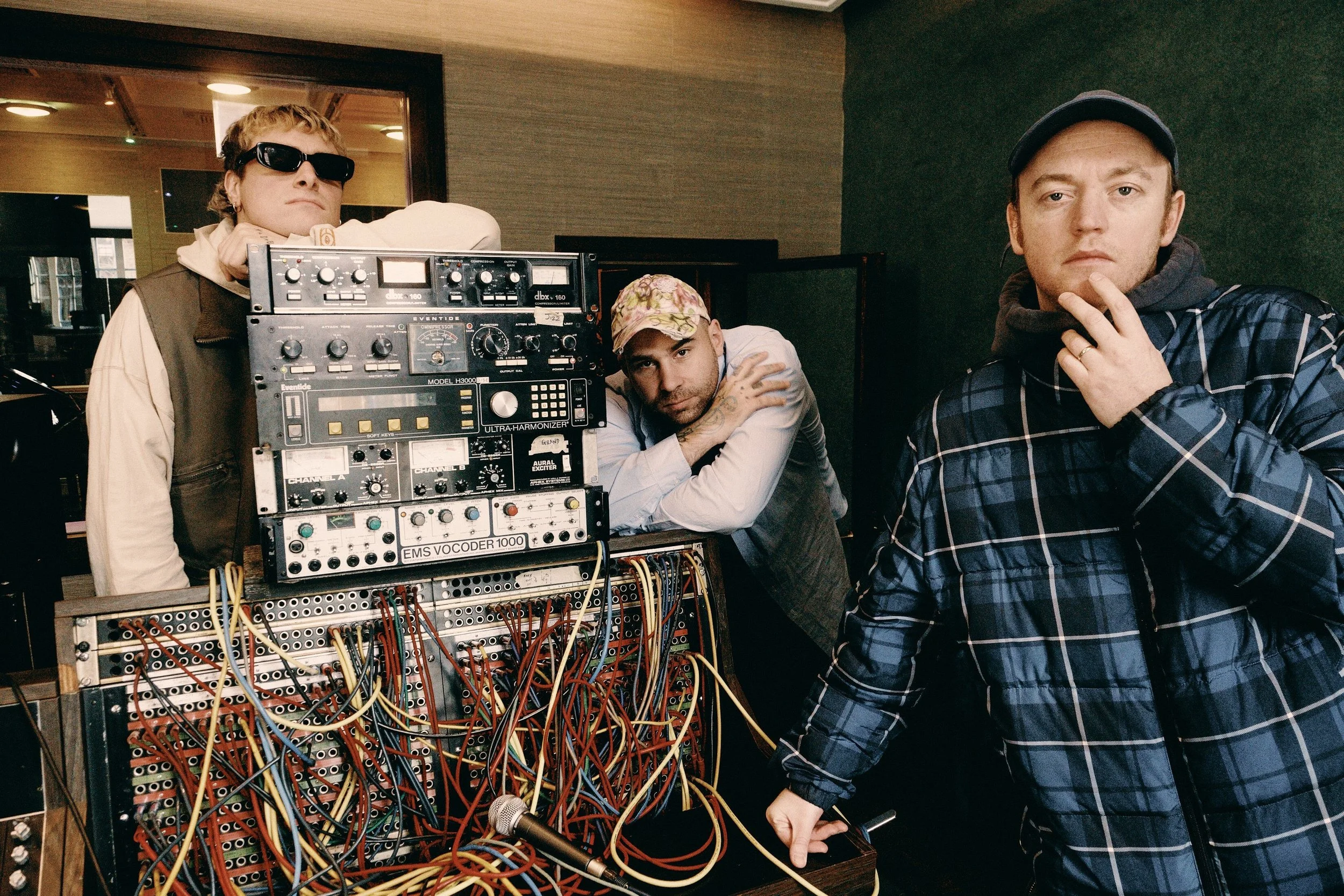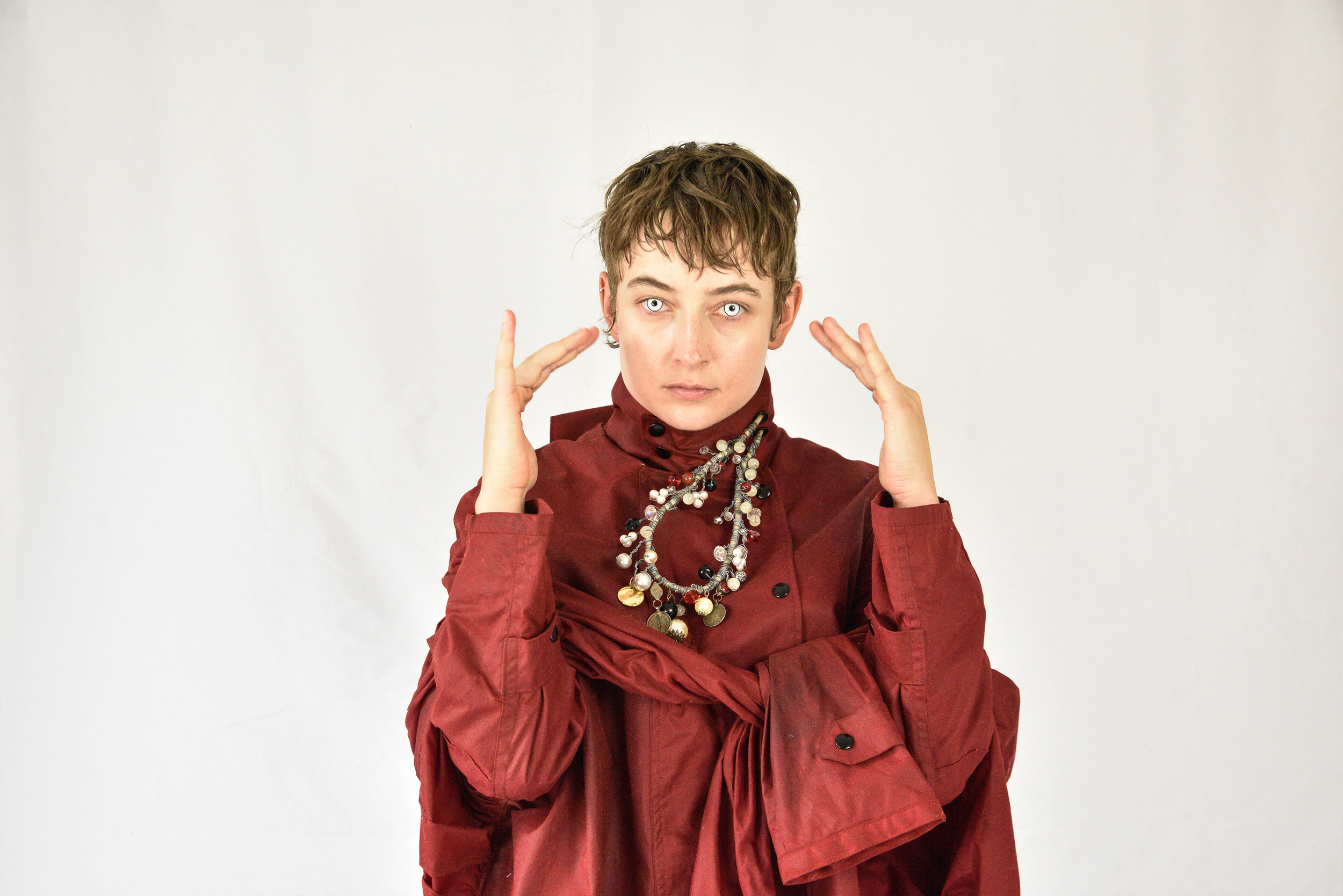Album Review: Squid - 'Cowards'

It can be said that the five-piece group of Squid have come a long way since their instrumental jazz days in Brighton playing and paying off their cheap rent way back in 2016. Since then, their broody, angular tropes of British colloquialisms within their Fourth World art-rock arrangements have dazzled and delighted audiences worldwide. Their breakthrough debut Bright Green Field in 2021 arrived off the coattails of post-pandemic with an experimental jazzy avant-garde affair. Their follow-up O Monolith was equally enigmatic, albeit far more brooding and experimental in tenacity. It's been a journey that's allowed the band to dip into any and all blends of arrangement while still staying grounded to their original, breakthrough sound.
While both albums dealt with quintessentially British sonics and lyricism, a new year and a new project has allowed Squid to look outward. Rooted around human evil and wrongdoing, Cowards extends their reach into folk, psychedelia, jazz and electronics as it plays out sounds that are perhaps more tribal and otherworldly in comparison. This marks it as either not setting in one bracket or the other - not art-rock nor is it jazz - but rather eerie rounds unable to place or relate making it resolutely brave in sound and scope, as unsettling crescendos wane out to discrete melody.
The story of Cowards is made up of nine tales as protagonists of real and imaginary come to their wits' end between right and wrong. It's not as clean-cut as Seven Deadly Sins but it's not far off. Apathy, moral cowardice and the notion of cults all appear through the nine tales. While lead Crispy Skin is warranted as being uplifting, the lyricism paints a darker portrayal of cannibalism in a creepily enjoyable movement. Singer and drummer Ollie Judge laments, "We love their crispy skin / 'Cause it's something that we crave / One hit right between my eyes / It's become so easy that's no surprise," as his moral compass is weighed, scrutinised and eventually shredded. For consumption, no doubt.
Building 650 meanwhile, seemingly plays an homage to off-kilter Krautrock in an eerie all-string accompaniment marking an individuals' loneliness in visiting a country that is very different to their own. In the case of Squid, it was the bands' very first visit to Japan - which, for a city capital can be quite unforgiving.
The folky double of Fieldworks is hauntingly beautiful while the self-titled seventh is a mourning trail of indie rock that's not too distant of Radiohead's The Bends. Elsewhere, Showtime! deals up the psychedelic washboard while Blood on the Boulders is a foreboding lull into a dramatic conquest of noise rock that is a clear standout here.
For such a sprawling album of course, sounds weren't just reliant upon the original five. For additional sounds, Squid called in on those most reliable. Danish experimental songsmith Clarissa Connelly weighed in, while Tony Njoku provided additional arrangements on piano. Rosa Brook threw her cents in from weird indie/punk group Pozi, percussion wizard and ethereal composer Zands Duggan also joins them but before too long we're met with the grandest of accompaniments. Ruisi Quartet perform their violin, viola and cello trio work throughout the record which no doubt projects it to greater levels.
Ever since their first Town Centre EP in 2019 with Dan Carey first having the eye (and ear) to spot such an idea, Squid have leaped in stretching the very sounds that we were thought to have been bound to. Bright Green Field, O Monolith and now Cowards. Every record feels like a unique lightbulb moment for the former jazz experimentalists, with Cowards being their most ambitious to date. Spliced with incendiary melodies and dark humour underlined with a brooding tale of human evil, Squid are more than just mere experimentalists. They are wizards in their ability to craft storytelling - and Cowards is just another chapter in that.
Words by Alex Curle
